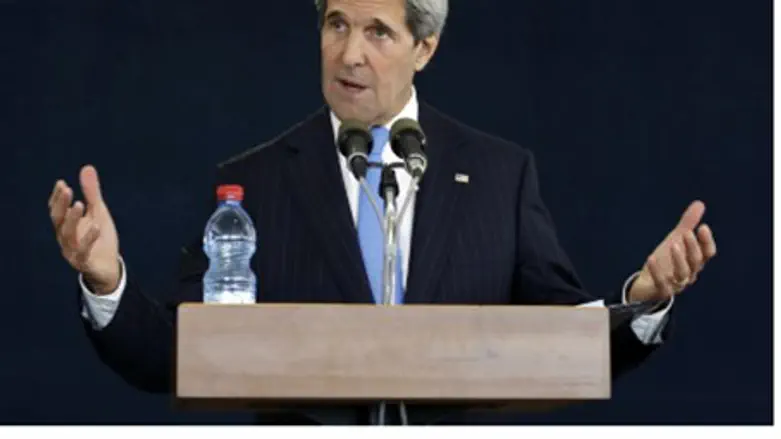
US Secretary of State John Kerry on Thursday defended President Barack Obama's policy in negotiations with Iran in the face of Israeli pressure and Congressional skepticism.
Speaking on MSNBC’s “Morning Joe.” Kerry said that he had just spoken by phone with Israeli Prime Minister Binyamin Netanyahu, and that the conversation was "very friendly and civil."
Netanyahu "believes that you can increase the sanctions, put the pressure on even further, and that somehow, that's going to force them to do what they haven't agreed to do at any time previously," Kerry explained.
However, he added immediately, “What’s important here is we stand with Israel firmly — 100 percent.”
“There’s no distance between us about the danger of [Iran’s nuclear] program and the endgame for us is exactly the same.”
“We all agree on the goal," he added, "we disagree on a tactic.”
Only "a tiny portion" of Iran's frozen funds would be thawed under Obama's plan, Kerry said, while 95 percent or so will remain. He added that removing a portion of sanctions is necessary and “will actually make Israel safer.”
“You have to do something to make it worthwhile for [Iran] to say, ‘Yes, we are going to lock our program where it is today, actually roll it back.’"
If the US doesn't negotiate with, the "breakout time" for Iran to produce a nuclear weapon would "contract," and the world would be a more dangerous place, he warned.
Kerry’s comments follow a briefing with lawmakers Wednesday about the negotiations with Iran. The New York Times reported that members of Congress are critical of a deal that would ease sanctions.
When asked about the disagreement with his former Senate colleagues, Kerry said that “every senator is entitled to be skeptical, entitled to ask tough questions” and he will continue to talk with senators in the next days.
But Kerry added a decision by Congress to increase sanctions could achieve the opposite of the intended effect.
“Iran may interpret the congressional reaction of wanting to increase sanctions as bad faith on our part and unwillingness to in fact negotiate and it may drive the hard-liners more into the commitment that they have to have the weapon,” Kerry said.
